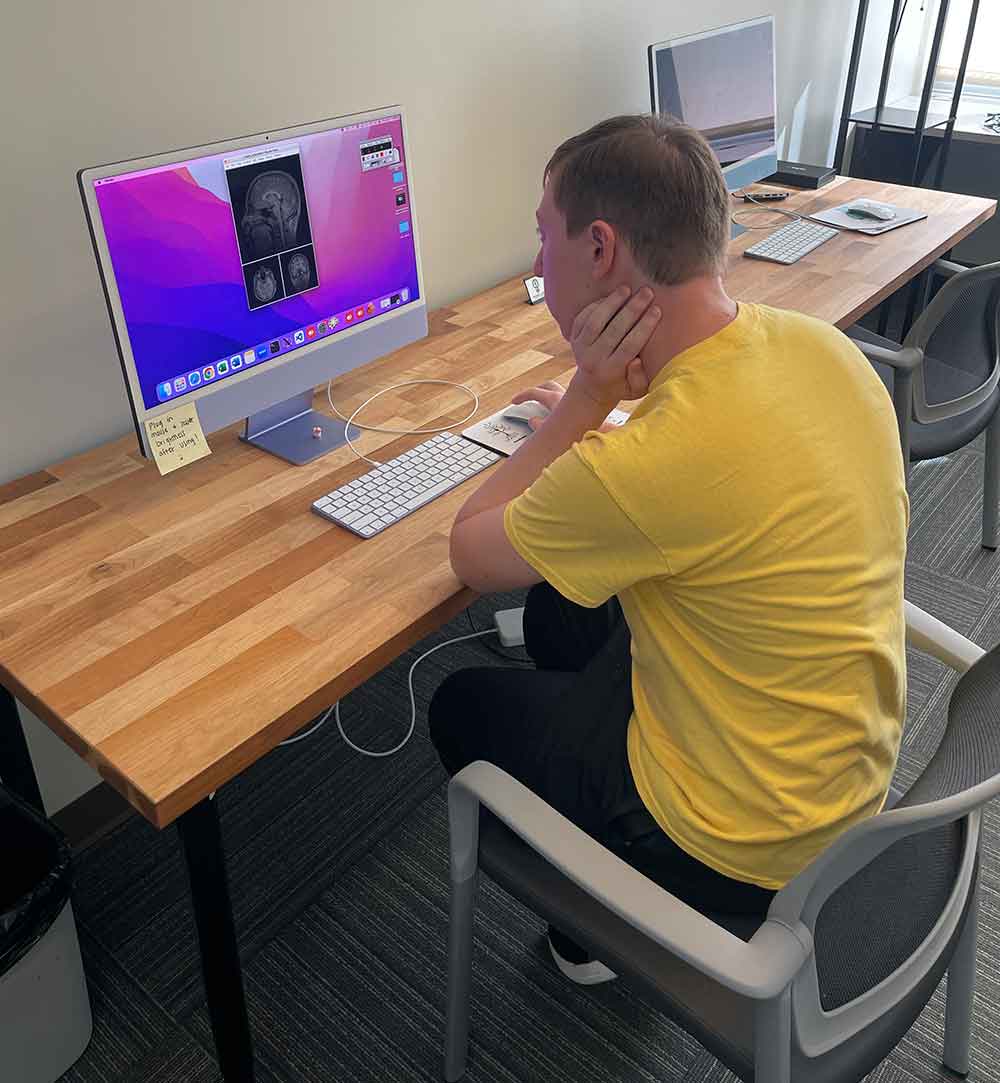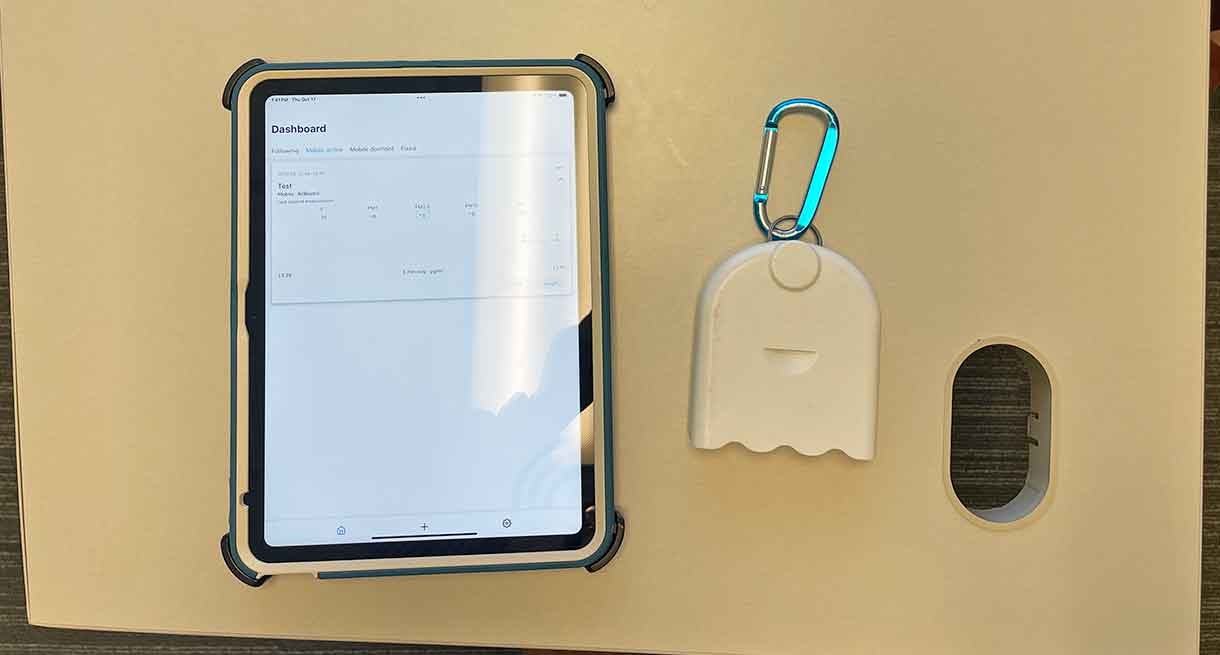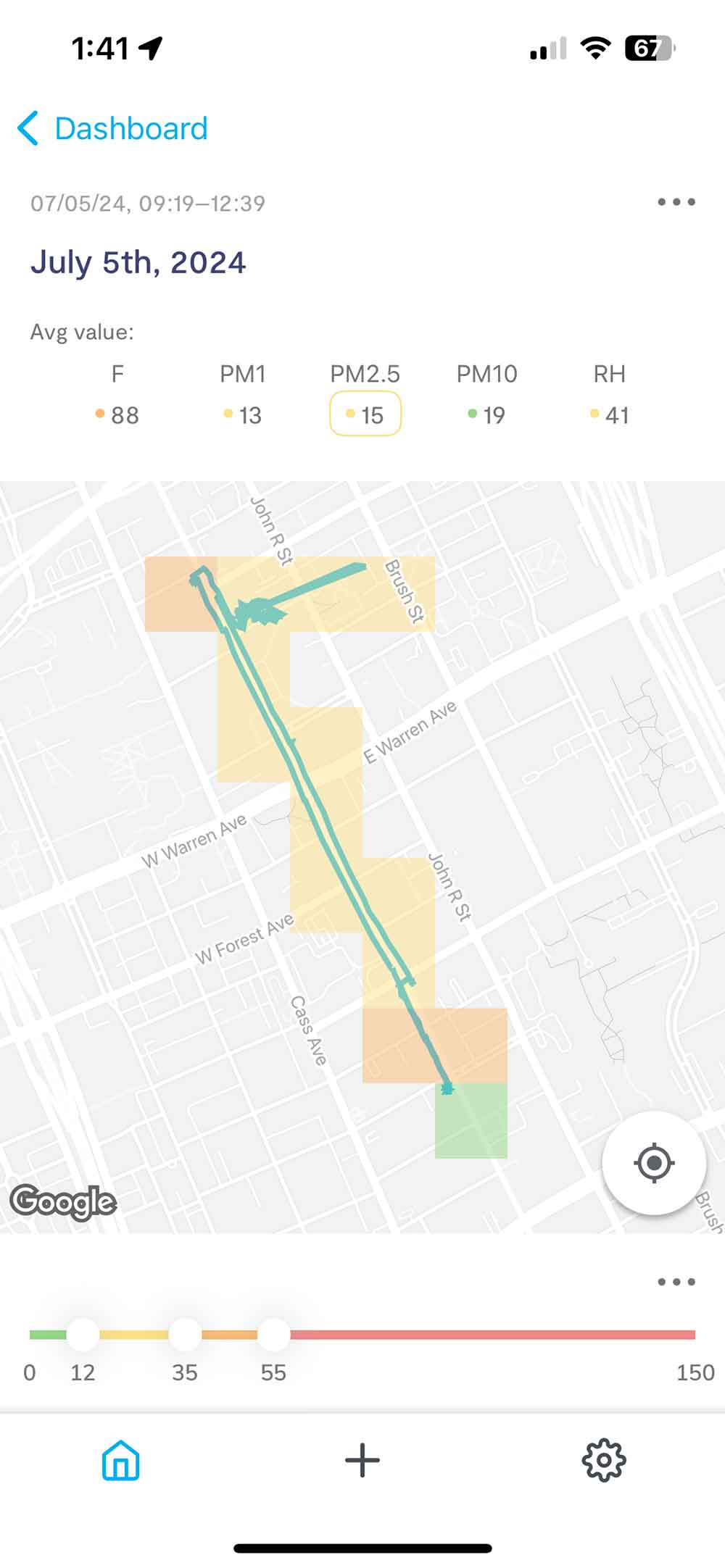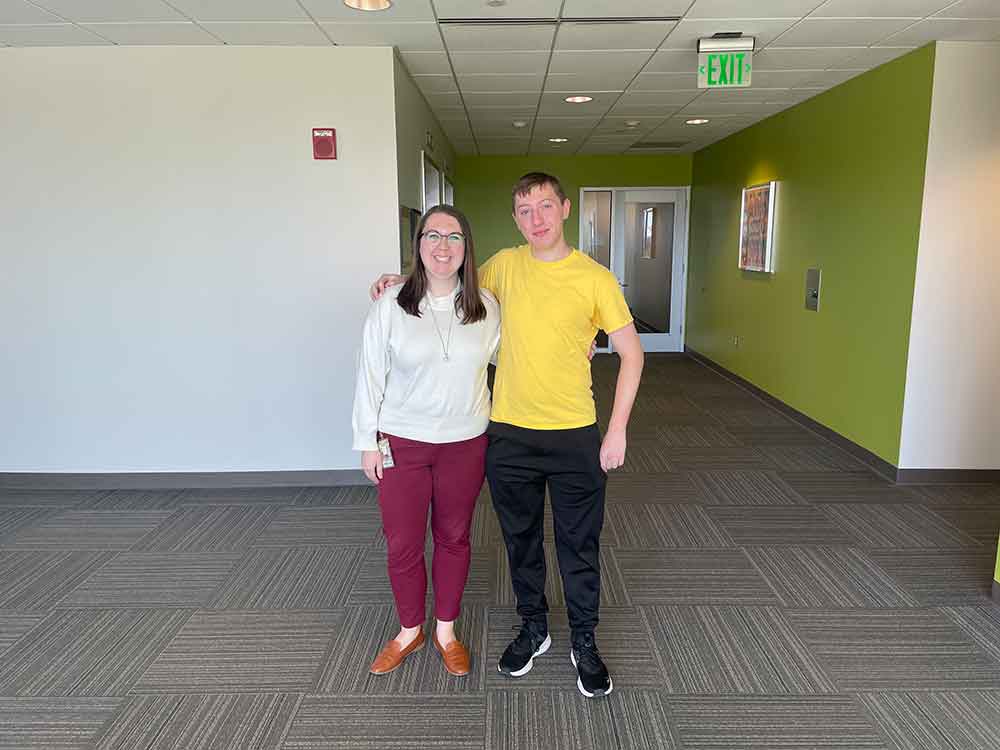
Exposure to air pollution is directly linked to adverse mental health symptoms. Recent honors neuroscience graduate Alexander Jakubiec is working with mentor Clara G. Zundel, Ph.D., a postdoctoral research fellow in the Wayne State Department of Psychiatry and Behavioral Neurosciences, to further explore air pollution’s effect on Detroit adolescents through research in Wayne State University’s THINK Lab (Trauma History Investigation of Neurodevelopment in Kids).
The project, “Air Pollution on the Brain: How PM2.5 Affects Anxiety, Depression, and Brain Circuitry in Metro-Detroit Adolescents,” is funded through the Undergraduate Research Opportunity Program (UROP), a unique Wayne State initiative that allows students to work closely with expert faculty on research in the hard sciences, providing hands-on experience to propel their academic journeys and kickstart their careers.
As a Carnegie R1 research institution – denoting the highest level of research activity – Wayne State students have access to world-class faculty who are leading experts in their fields.
“Students bring a fresh perspective to the research,” said Zundel. “They often think about questions in ways I've never thought about them before. It's a refreshing insight that often helps the research.”

Jakubiec and Zundel’s collaboration examines exactly how air pollution impacts the way the developing brain functions, specifically in the salience network, a group of brain regions that work together to handle emotional regulation. According to Zundel, multiple studies link air pollution exposure to increased adverse mental health symptoms, but fewer have studied what happens in the brain that leads to that increased risk. That’s where the Wayne State research comes in.
The team focused on past-week (the week prior to subjects coming in for an MRI scan) air pollution using personal air monitors that clip onto adolescents’ backpacks – a novel, individualized approach – and then take MRI scans of participants’ brains.
Jakubiec’s motivation for this study stems from his multifaceted interest in chemistry, neuroscience, medicine and psychology. A psychology major turned to neuroscience; he said he found a sense of “meant to be” with his research in the WSU THINK Lab.

During his time at Wayne State, Jakubiec held various research positions, each of which required an interview. It was through these interviews that he met several faculty members across the university, including Hilary Marusak, Ph.D., associate professor of psychiatry and behavioral neurosciences in the School of Medicine and director of the WSU THINK Lab. Marusak introduced him to Zundel and the groundbreaking work happening in the THINK Lab.
“It’s really nice to have a mentor in the research world,” added Jakubiec. “It’s also nice to have someone who’s further down the line to talk about next steps with because the mentors have seen it all, and they’re good sounding boards. Clara has done so much to guide me.”
Zundel said she is simply paying it forward. “I was really involved in undergraduate research when I was an undergrad at Wayne. So, I always want to make sure people are getting the best experience through research, one that inspires them to go into that field or whatever field that fits them best.”.
With opportunities to engage in hands-on research, UROP allows Wayne State students to work side-by-side with expert faculty mentors to find innovative solutions to real-world problems. It's a win-win for students and faculty.

“A huge thank you to UROP,” said Marusak. “It’s a unique opportunity for our undergraduate students to get involved in research in a meaningful way, especially at Wayne State, where there are so many tremendous research pursuits; the students benefit, as do we.”
At Wayne State University, undergraduate students have learning opportunities that extend well beyond the classroom, allowing them to put knowledge “to work” in real-world settings while gaining deeper insights and new perspectives. Through the Undergraduate Research Opportunities Program (UROP), students can connect with world-class faculty mentors to conduct, publish and present research. Providing hands-on learning opportunities to all Wayne State students is part of the College to Career initiative and key to ensuring they graduate career ready.
By Katheryn Kutil
